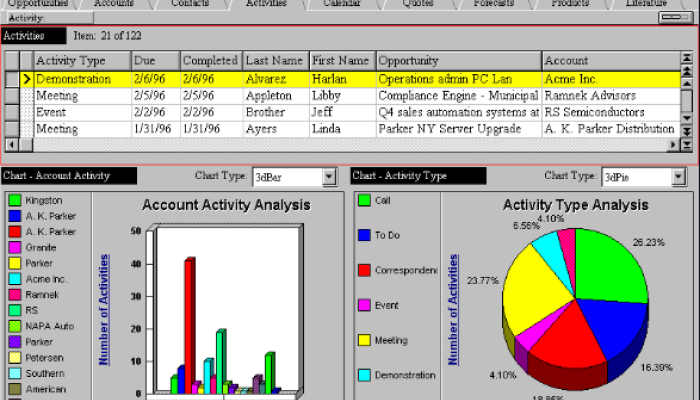
We all know the stereotypes about salespeople: pushy, aggressive, always "on." But does the profession attract neurotic people, or does it actually create them? Published research delivers a sobering reality check: your job might be fundamentally rewiring your personality, and not in a good way.
Researchers at the University of Houston analyzed approximately 1,700 B2B salespeople and 24,000 non-salespeople across four comprehensive studies. Their findings are startling—B2B salespeople consistently report significantly higher levels of neuroticism than people in other professions. And this isn't about who chooses to go into sales, as the research controlled for selection bias. This is about what sales does to you over time.
Neuroticism, one of the Big Five personality traits, is characterized by anxiety, emotional instability, and a tendency to experience negative emotions. While everyone experiences some level of neuroticism, the research shows that working in B2B sales actively increases these tendencies through constant exposure to uncertainty and stress.
"We find that business-to-business sales can change one's personality and is positively associated with neuroticism," explains Johannes Habel, the study's lead author and Associate Professor of Marketing at Bauer College. "Complex customer needs require salespeople to juggle numerous variables and expectations, which can be mentally taxing."
The researchers identified five specific characteristics of B2B sales jobs that drive increased neuroticism:
Complex Customer Needs: Unlike selling a car to a consumer (a few-hour process), B2B salespeople navigate multifaceted requirements involving multiple stakeholders and intricate solutions. One wrong move, one missed requirement, and months of work can evaporate.
Endless Sales Cycles: B2B sales cycles can stretch for months or even years. Imagine investing that much time and emotional energy with no guarantee of success. The prolonged uncertainty creates a breeding ground for anxiety and stress.
High-Stakes Negotiations: You're battling experienced procurement teams who make careers out of getting the best deals. Every conversation feels like a chess match where you're constantly defending your position.
Complex Sales Targets: It's not just about hitting a revenue number. B2B targets involve multiple metrics, territories, product lines, and stakeholder requirements. Success depends on variables often outside your control.
Variable Compensation: When 50-70% of your income depends on factors you can't fully control—economic downturns, client budget freezes, internal restructurings—financial anxiety becomes a constant companion.
The Hidden Cost of "Eating What You Kill"
This isn't just about feeling stressed. Persistent uncertainty triggers defensive emotional responses. When activated frequently over time, these responses don't just create temporary stress, they fundamentally alter your personality.
Higher neuroticism doesn't just affect your work performance. It's linked to decreased job satisfaction, increased risk of burnout, and negative impacts on mental and behavioral health. The researchers note that "the adverse consequences of neuroticism are usually passed on to public health systems, where the overall economic burden of neuroticism has long surpassed the costs associated with treating common mental disorders."
In other words, the sales profession isn't just burning out individuals, it's creating a public health problem.
What Companies Can (And Should) Do
The good news is that this isn't inevitable. The researchers identified four specific interventions that companies can implement:
- Redesign Jobs: Simplify and streamline B2B processes to reduce cognitive load. Instead of requiring reps to be experts in everything, create specialized roles and support systems.
- Invest in Training: Equip salespeople with specific skills to handle long sales cycles and tough negotiations.
- Revise Compensation: Provide more stable income through better base-to-variable ratios. Financial uncertainty is a major driver of the anxiety that leads to increased neuroticism.
- Build a Culture of Care: Implement regular mental health check-ins, provide access to mental health resources, and foster strong support networks. Treat mental health like physical safety—as a business imperative, not a nice-to-have.
The Reality Check You Need
Here's the uncomfortable truth: if you're feeling more anxious, more pessimistic, or more emotionally reactive than when you started your sales career, you're not imagining it. You're not weak. You're experiencing a documented psychological effect of working in an inherently uncertain environment.
The first step is acknowledging that B2B sales roles carry mental health risks similar to how some jobs carry physical risks. For sales professionals, this means making informed career choices and prioritizing mental health maintenance. For sales leaders, it means recognizing that employee wellbeing isn't just about retention—it's about preventing genuine psychological harm.
The research doesn't suggest that everyone should abandon B2B sales. Instead, it calls for honesty about the profession's impact and proactive measures to protect the people who keep our economy moving. Because while neuroticism might help you close deals in the short term, the long-term cost—to individuals, families, and society—is simply too high to ignore.







